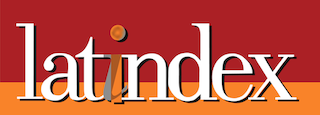About the Journal
EDITORIAL POLICY
Revista de Direito da ULP / ULP Law Review (RDULP / ULPLR) is an academic journal of the Lusófona University of Porto, focused on the legal sciences, trilingual (English, Portuguese and Spanish), with (double) scientific external arbitration (“double” blind peer review ”), which is published twice a year in physical and "online" format, in open access, respecting the deontology rules of journalists and readers.
OBJECTIVES AND SCOPE
ULPLR aims to cover the different areas of law, fostering legal excellence through the various types of contributions of the authors, thus contributing to the dissemination of knowledge and reinforcement of reflection and legal dialectics.
ULPLR intends to be an aggregating pole of the legal community, gathering the contributions of academics, magistrates, lawyers and other professionals of the forum or linked to legal activities.
ULPLR aims to contribute to the advancement of legal science through the publication of original contributions, not previously published or in the process of being published in other Journals. Authors must sign a Declaration of originality and authorship.
STRUCTURE AND SUBMISSION OF CONTRIBUTIONS
ULPLR is structured in 3 sections: Articles, Reviews and Varia.
The Articles section includes doctrinal articles submitted and accepted through the double-blind peer review process.
The Reviews section includes analysis presented to national or international legal works.
The Varia section may publish both case-law notes and other contributions which, for their legal interest, may be deemed relevant.
Articles must have a maximum length up to 60 000 characters, including spaces and footnotes but excluding the bibliography, and must be preceded by an abstract in Portuguese and in English.
All other contributions must have a maximum length up to 30 000 characters, including spaces and footnotes but excluding the bibliography, and must contain an abstract in Portuguese and in English.
References and bibliographic citations should be presented according to APA.
ETHICS AND GOOD PRACTICES IN PUBLICATION
ULPLR is a peer reviewed journal, committed to ensuring the highest ethical standards in publishing. All parties involved in the act of publication (Board, Editorial Board members, Advisory Board, authors, reviewers, and editor) must agree to the standards of ethical behavior.
ULPLR has a strict policy of upholding the principles of the declaration of ethics and good practices in publication, based on the Code of Conduct and Good Practice for Journal Editors of the Committee on Publishing Ethics - COPE (available at http://publicationethics.org/).
RESPONSIBILITIES OF THE DIRECTOR AND THE ADVISORY BOARD
The ULPLR Director and Advisory Board are responsible for:
- decide which articles submitted to the journal should be published, and the decision should be guided by the journal's rules and legal requirements regarding defamation, copyright infringement and plagiarism;
- advise members of the Editorial Board on their roles and keep current members updated on new policies and developments;
- evaluate articles solely and exclusively on the basis of their academic and intellectual merit;
- Ensure that the process of scientific arbitration of articles is an external double-blind peer review, fair and impartial and that all information relating to them remains confidential, ensuring the protection of the identity of authors and of the reviewers;
- ensure an appropriate selection of reviewers by developing and maintaining a database of reviewers updated on their performance;
- ensure that unpublished materials disclosed in a submitted article are not used in research by a member of the Advisory Board without the express written consent of the author;
- respond to complaints about an article submitted or published by taking the necessary and appropriate measures;
- Post corrections, clarifications, retractions and apologies as needed.
RESPONSIBILITIES OF THE AUTHORS
- Authors should not simultaneously submit the same article to more than one publication;
- Authors should ensure that their work is original and unpublished, and any contributions or references from other authors, contributors or sources are properly accredited and referenced;
- Plagiarism is unethical behavior in publishing in all its forms and is unacceptable;
- Authors must ensure that the submitted article has not been published elsewhere and must assign the publication rights to ULPLR;
- The author responsible for exchanging correspondence with the journal should ensure that all appropriate co-authors are included in the article's author list and that there is consensus among all the authors and co-authors in approving the final version of the article and its submission for publication;
- Authors should indicate all sources of financial support for the work;
- When an author discovers a significant error or inaccuracy in their own published work, it is the obligation of the author to immediately notify the Board and the Advisory Board of the journal and to cooperate with them to correct or remove the article from publication.
REVIEWERS RESPONSIBILITIES
- Peer review supports the decisions of the ULPLR Director and Advisory Board and, through editorial communication with the author, can also help the author improve the article;
- Any reviewer contacted to review an article, who does not feel qualified to review the investigation described in the article, who knows that his or her assessment will not be able to meet the deadline, or who identifies a potential conflict of interest, should notify ULPLR’s Board immediately so that it is possible to contact alternative reviewers;
- All articles received under peer review should be treated as confidential documents;
- Any inside information or ideas obtained through peer review should be kept confidential and may not be used for personal gain;
- Reviewers should inform the ULPLR Board if they are aware of any copyright infringement and / or plagiarism by the author;
- Opinions should be objectively structured and comments should be formulated clearly and based on arguments that support them, so that authors can use them to improve their article;
- Reviewers evaluate articles solely and exclusively based on their content.






